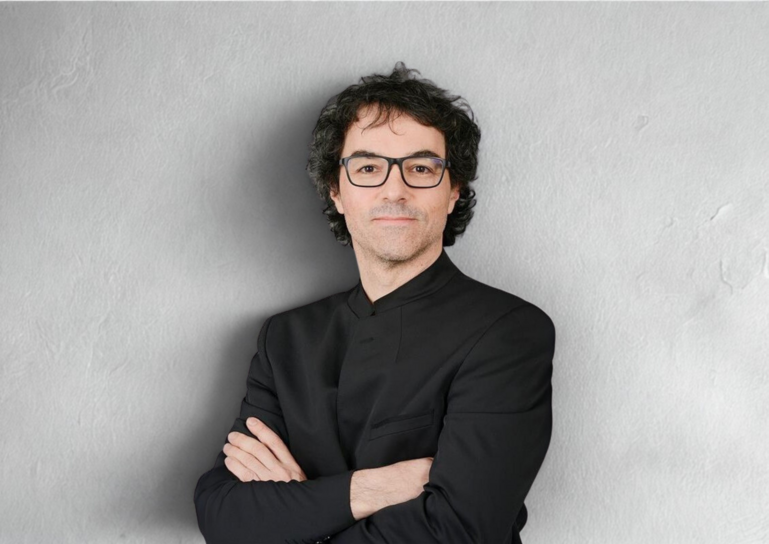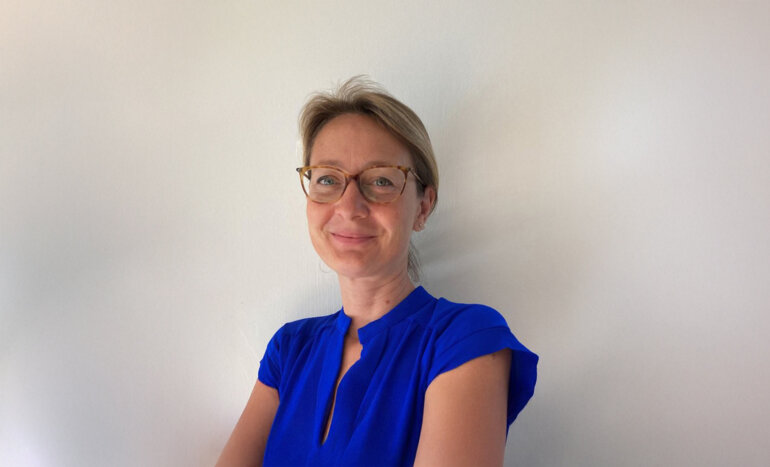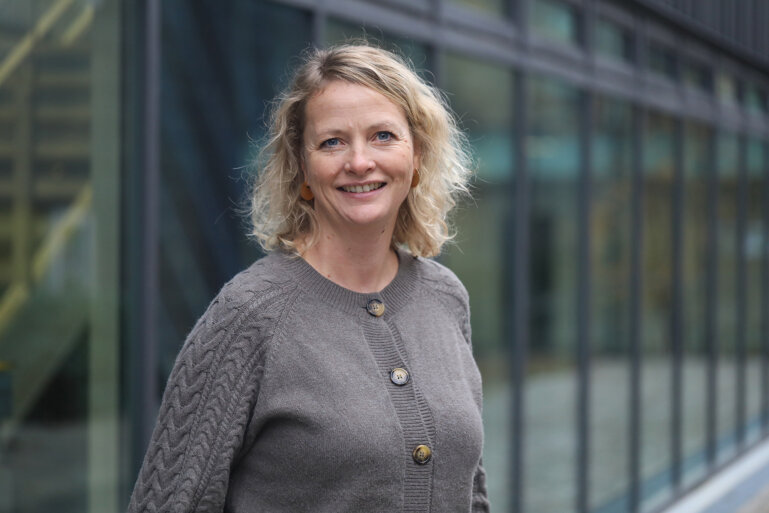An interview with ESMO President Prof. Fabrice André underscores the importance for any medical oncologist of developing artificial intelligence literacy
As oncology becomes increasingly digitalised, there is a critical need for enhancing training opportunities to equip oncology professionals with the proper tools to master artificial intelligence (AI) in cancer care.
Ahead of the first ESMO AI & Digital Oncology Congress, taking place in Berlin, Germany, between 12-14 November 2025, ESMO President Fabrice André, Director of Reasearch at Institut Gustave Roussy, Villejuif, France, and Professor of Medicine at the University of Paris-Saclay, France shares his personal experience with AI, underscoring that developing AI literacy is crucial to drive progress in cancer care today.
When did you first decide to explore the field of AI?
The first time I was exposed to AI was back in 2018. At that time, I had heard about the use of AI in oncology, but I was not really convinced of its potential and clinical utility. So, at the Institut Gustave Roussy we organised a grand challenge to explore whether AI could predict patient outcomes based on pathology slides with a higher performance compared to the human assessment. The initiative involved many professionals and, in the end, we realised that AI, if well trained by humans, can outperform human specialists in specific tasks and improve clinical decision-making. That first experience was followed with the proof of concept showing that AI can indeed discover, feature, and develop predictors, and that pathology assisted by AI can play a role in large-scale screening of patients for molecular alterations (Nat Commun. 2025 Jul 1;16(1):5876).
Since then, at our institute we have continued to run projects supported by predictive AI tools, exploring how they can be integrated into clinical workflows, improve patient selection for trials, and ultimately support personalised cancer care.
As of today, there is not a specific curriculum for oncologists for training in AI, so many oncology professionals proactively search education opportunities to develop the essential skills to work with AI. How did you start your journey to get more knowledgeable in the field?
When my team and I took our first steps in the AI field, we received specific training from the Ecole Centrale Supeléc, France, which has a research centre in mathematics. Education in the field of AI aims to build background knowledge and a “common language” to enable oncology professionals to navigate such inter-disciplinary field, rather than turning them into AI experts – as I still do not consider myself, and I will never do.
Today, some disciplines beyond the traditional scope of oncology are essential to developing and supporting AI-driven cancer research and care. In my daily routine, for example, I work closely with mathematicians. The way we work today in oncology also requires highly skilled IT professionals, AI or data experts, and it is crucial for everyone to understand that these roles play an important part within our organisations. These professionals collaborate closely with oncologists to identify the best solutions, balancing their usability with clinical needs and levels of evidence. An oncologist alone, with few exceptions, cannot lead the field - it is simply not possible.
As hospitals and the patient journey become increasingly digitalised, these specialists must be fully integrated into our oncology community. This is why ESMO has recently started to welcome professionals from diverse fields: collaboration across domains is now shaping the future of AI-driven oncology.
AI is a fast-growing field where novel tools and systems are continuously developed and enter the market. How could oncology professionals keep up with the pace of technological advances?
AI today is advancing faster than our capacity to be trained: by the time we understand one concept, a new one has already emerged. This results into two main challenges. Firstly, the pace of AI tools development makes it very difficult for clinicians and researchers to stay fully up to date with the latest knowledge. Secondly, because progress is so rapid, there is often a lack of dedicated efforts to demonstrate the clinical utility of a specific device or approach through well-designed studies. In this “technology race”, companies tend to move quickly to the next step without generating strong evidence for the previous one. This has, of course, major implications on our work in oncology.
ESMO is set to play a dual role in bridging the gap between technological innovation and clinical implementation of AI in oncology. On one side, the Society provides continuous education opportunities to help its members stay up to date with the latest advances in the field. On the other side, ESMO fulfils its role as a scientific society by setting standards, defining frameworks, and establishing the levels of evidence required for the safe and effective integration of AI tools into clinical practice.
How should education in oncology be reshaped to support oncology professionals to integrate AI into their research and clinical practice properly, thus supporting progress in the field?
I see AI as a tool, and people simply need to understand how to use it properly. As with any tool, and differently from teaching scientific content, education should go beyond the technical aspects of usability, and it must cover the optimal applications and the risks of a potential misuse. For example, we need to learn not only how to write right prompts, but also that overreliance on technology may be detrimental.
For example, if medical oncologists rely too heavily on generative AI – especially those with no solid clinical expertise - they may not acquire or may progressively lose the depth of knowledge required to manage complex clinical cases. At the end of the day, what makes a good doctor is not only the ability to deliver simple routine care efficiently, but also the ability to make sound decisions for complex patients. And generative AI, at least in its current state, is not well suited for this latter role.
This is why education is critical: overusing any tool, including generative AI, inevitably reduces independent expertise, and may negatively affect patient care, at least in the short term. The long-term consequences are harder to predict.
Moreover, generative AI should not be treated as just another digital gadget. We need to start viewing it as a medical device. Like laboratory or imaging tools, it must undergo rigorous clinical testing to demonstrate utility, validate outcomes, and ensure that the data it provides can be trusted.
AI & Digital Oncology: Resources in one place
Looking for further insights into how artificial intelligence and digital tools are impacting oncology? The ESMO AI & Digital Oncology Hub brings together expert perspectives, research updates, and thought leadership from across oncology.
It is a space where you can stay informed, discover resources, and follow the conversation on digital innovation in cancer research and treatment.
To further explore the transformative potential of AI in oncology, the very first ESMO AI and Digital Oncology Congress 2025, taking place from 12 to 14 November, will provide a dedicated platform focused on the latest advances in AI and digital technologies in cancer care.







